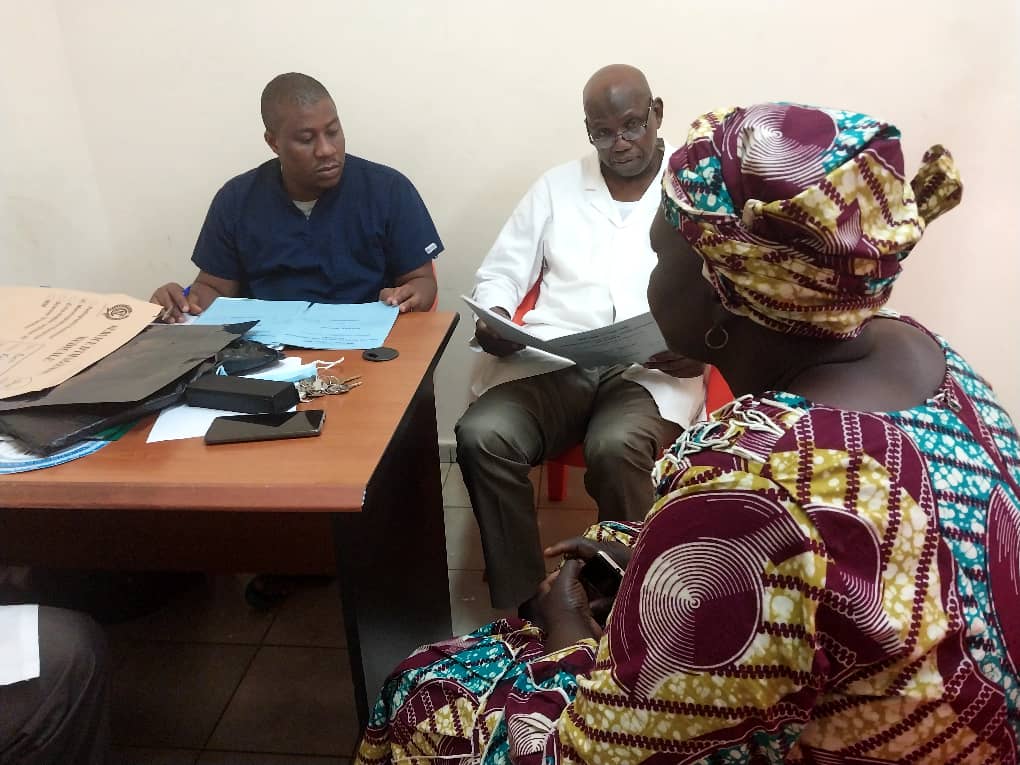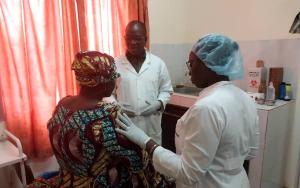Progress towards cervical cancer elimination
Conakry – In Guinea, around 30 health centres offer free cervical cancer screening services, giving thousands of women the chance of early detection of the disease, and appropriate treatment. In the past, many women across Guinea lacked access to screening services for cervical cancer—the most common cancer among women—especially in remote areas.
A concerted push by health authorities to integrate cervical cancer screening into sexual and reproductive health services, a critical intervention in a country where cervical cancer accounted for 26.3% of all cancers in 2021, with a 71% mortality rate.
“Right now, more than 50% of cases are caught at stage one or two, which improves the chances of recovery.” – Professor Keita Namory, head of the Donka Oncology Unit
“To be honest, if this centre weren’t near my home, I don't think I would have taken the time to go and get tested for cervical cancer,” says Nansira Kourouma Traore. The 34-year-old resident of the capital Conakry has benefited from the services offered by an oncological centre at Donka Hospital.
For Traore, it was a radio show that convinced her to get tested. “The show made a deep impression on me,” she admits.
Regional and prefectural level hospitals in Kankan, as well as those in the urban centres of Siguiri and Faranah, have been equipped to screen for and treat cervical cancer since 2004, thanks to support from the United States Agency for International Development. In October 2021, the addition of 15 centres brought to 32 the total number of sites offering these services. A mobile clinic, providing testing and referring cases to care centre as necessary, was also established to serve remote villages.
“The improvement of care by integrating cervical cancer screening activities into the minimum package of services offered by health centres and hospitals is the best approach to prevent women from being tested too late.” – Dr Casimir Manengu, WHO Representative to Guinea
Two of the facilities are equipped to treat precancerous lesions, a service that is set to be expanded to all the sites.
“Cervical cancer develops silently for at least 15 years if there is no underlying pathology. If the disease is diagnosed during this time, precancerous lesions can be treated, and the patient easily cured,” explains Professor Keita Namory, head of the Donka Oncology Unit, adding that this treatment is free in public health facilities.
The earlier that cervical cancer is detected, the higher the chances of recovery. “When screening is done late, treatment is very expensive and the chances of a cure are significantly reduced. But right now, more than 50% of cases are caught at stage one or two, which improves the chances of recovery,” Professor Namory says.

The establishment of local screening centres has been coupled with awareness-raising activities.
“The improvement of care by integrating cervical cancer screening activities into the minimum package of services offered by health centres and hospitals is the best approach to prevent women from being tested too late. We are working on this with the health authorities,” says Dr Casimir Manengu, WHO Representative to Guinea.
World Health Organization (WHO) is supporting Guinea's drive to eliminate cervical cancer, through training of health workers. To date, 495 people have been trained. WHO also supported the establishment of the Francophone Regional Training Centre for the Prevention of Gynaecological Cancers in Conakry.
In addition, WHO is providing expertise in the development of the country’s strategic plan for noncommunicable diseases, including gynaecological cancers, the development of a National Cancer Charter, and the implementation of the National Cancer Control Plan.
